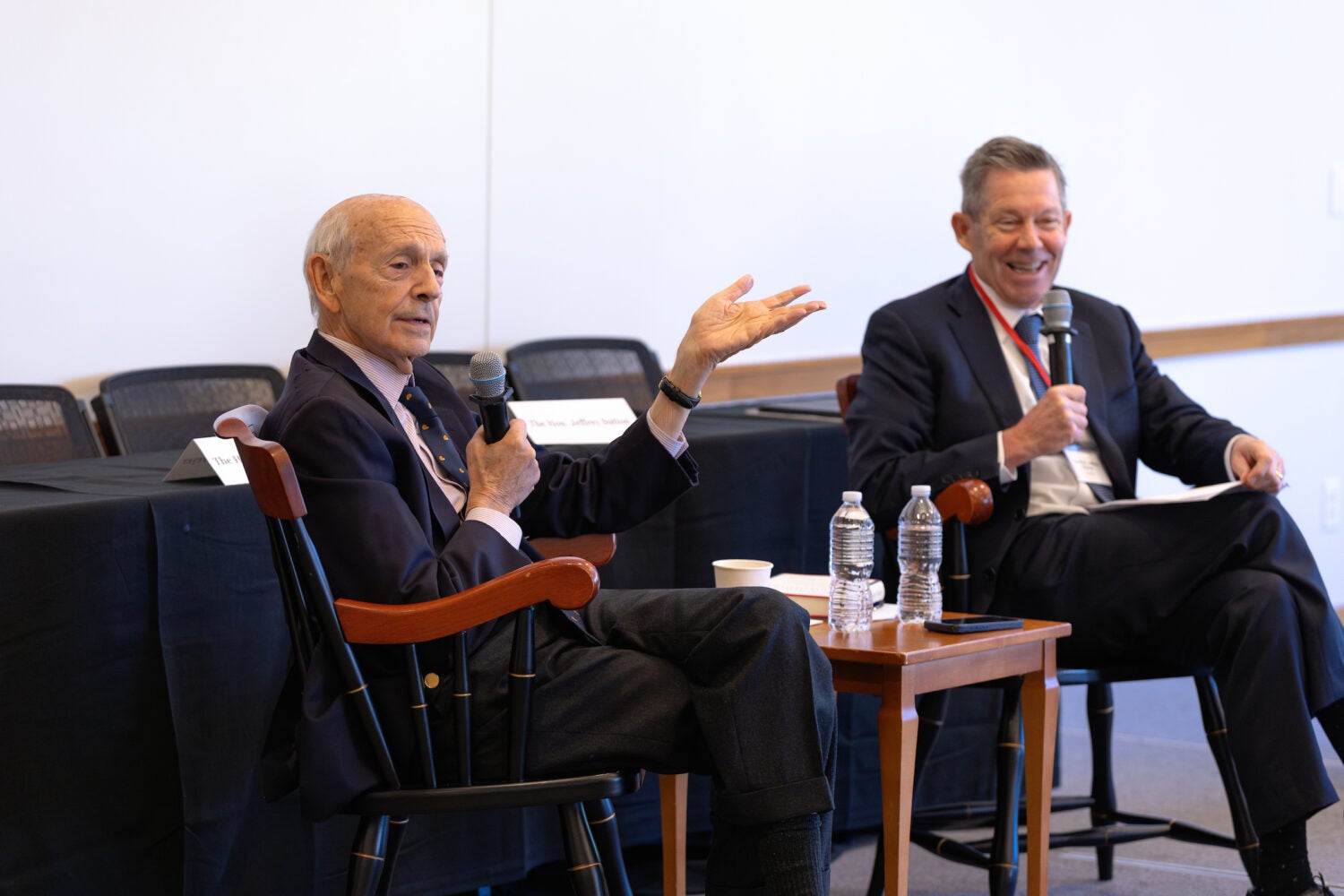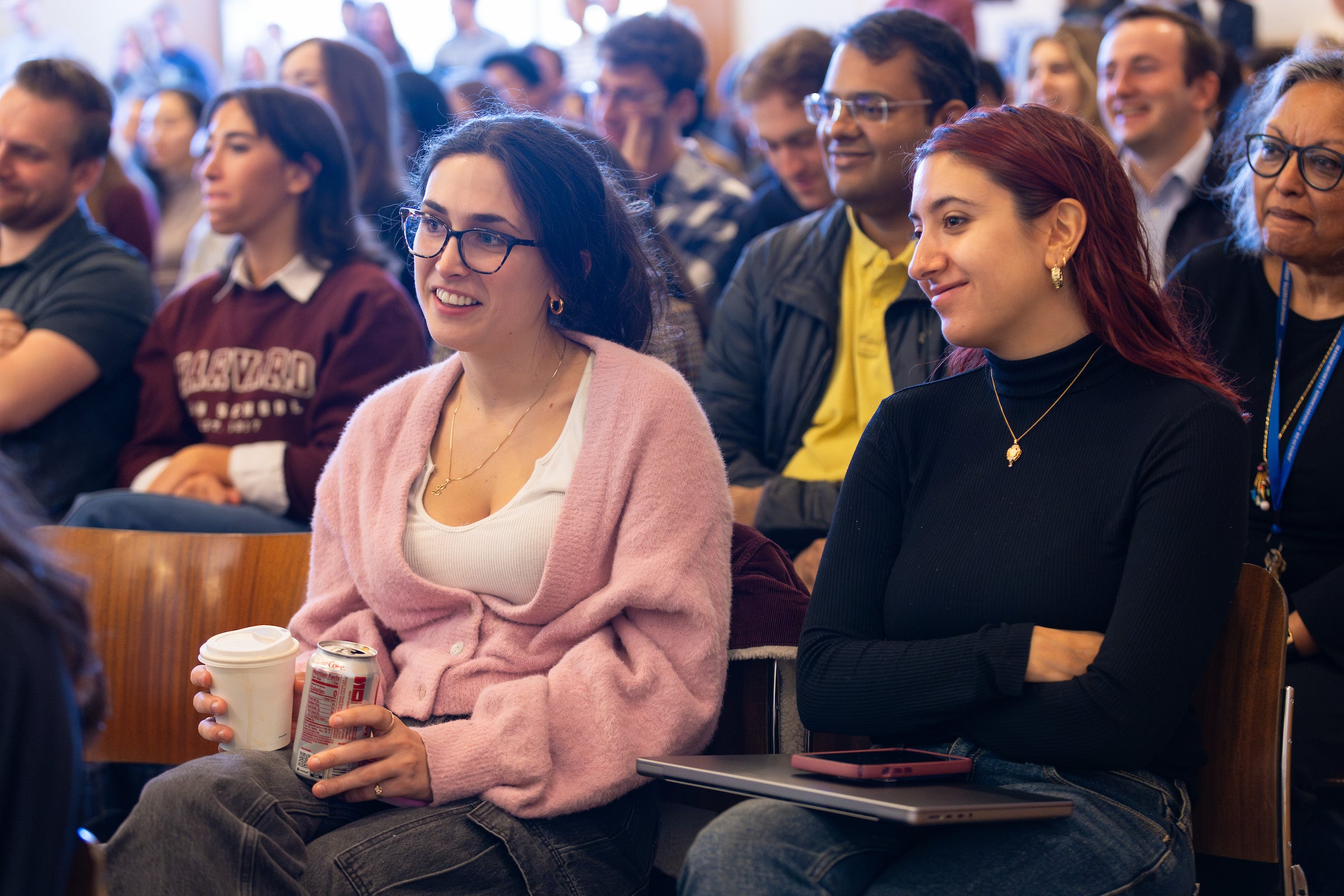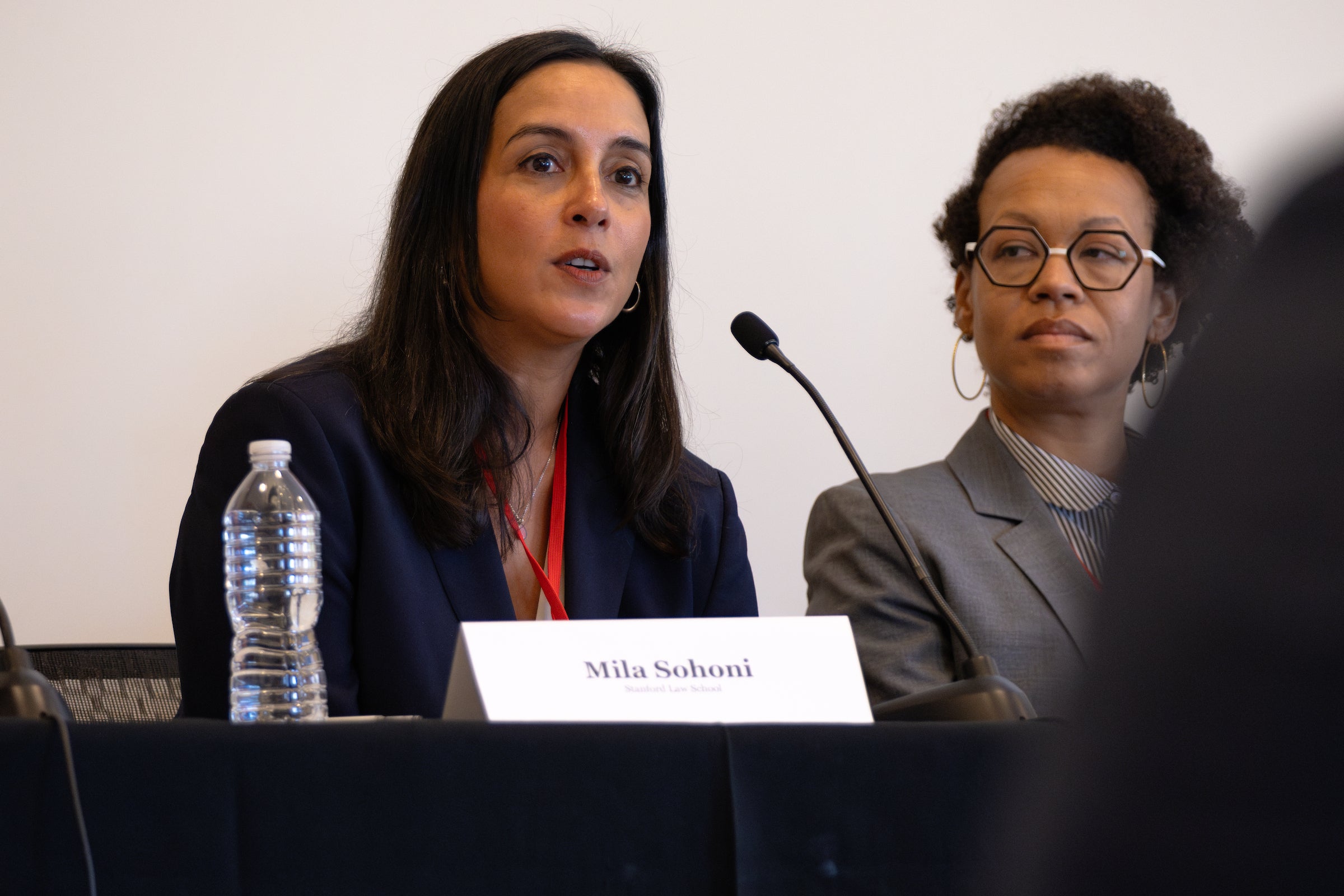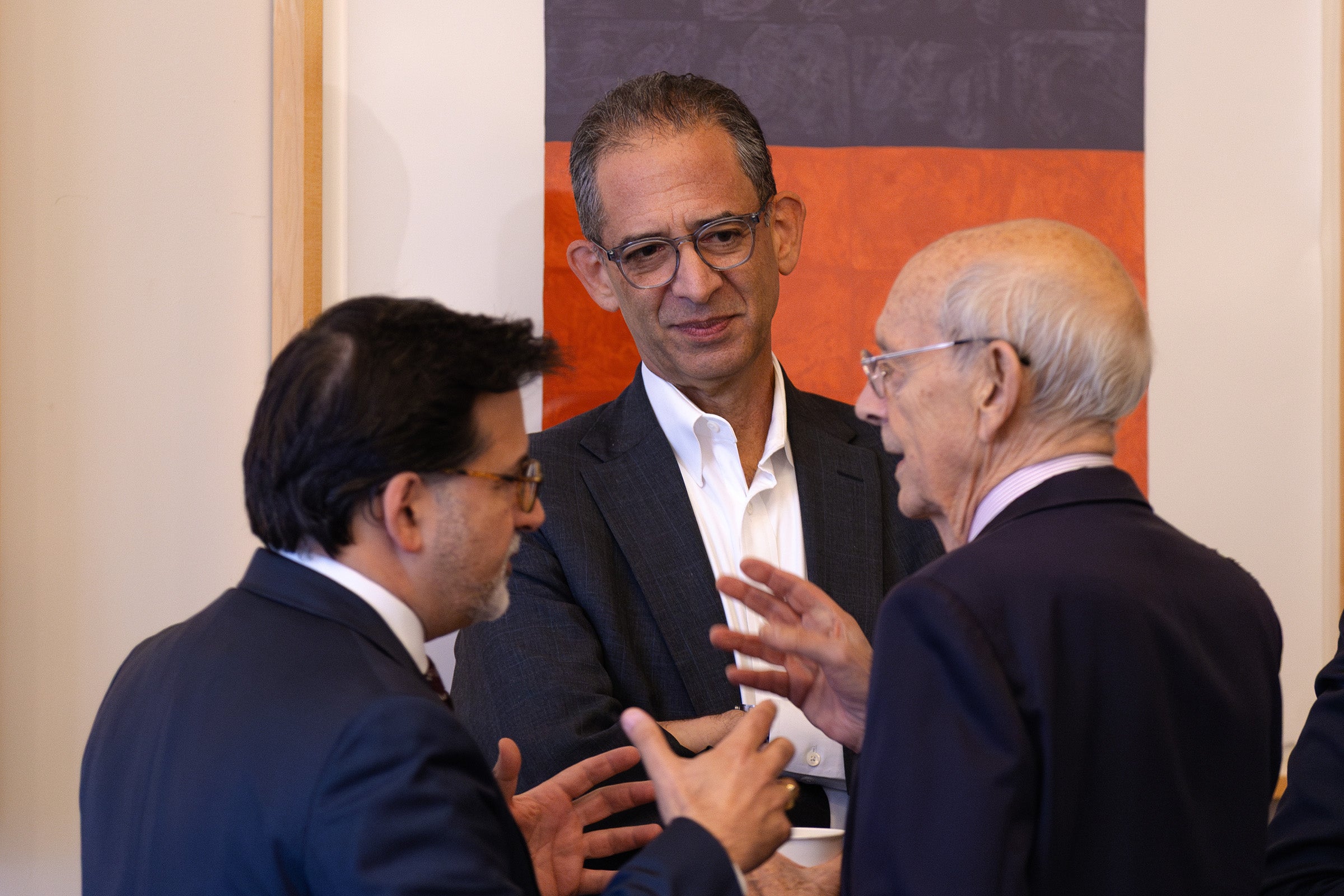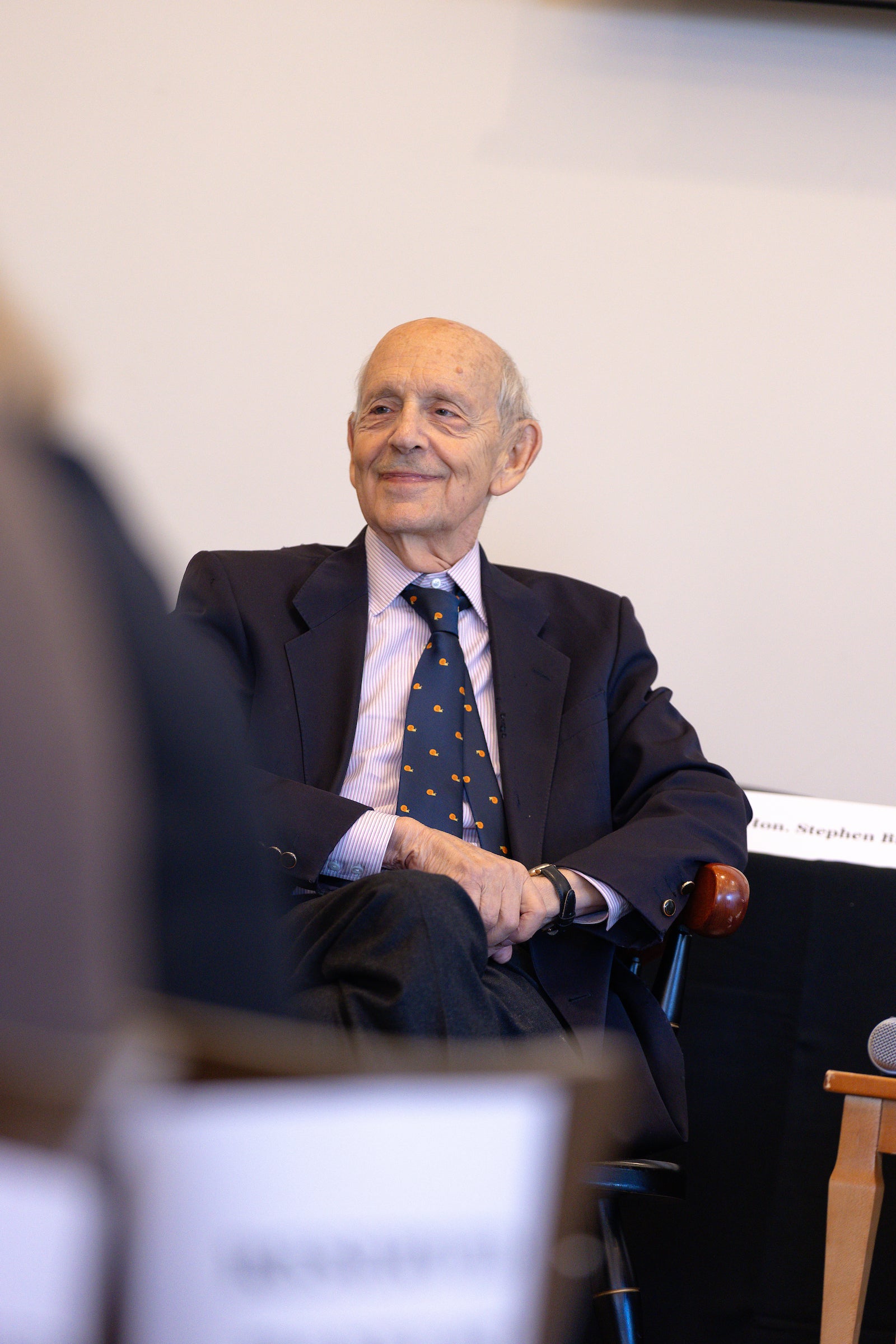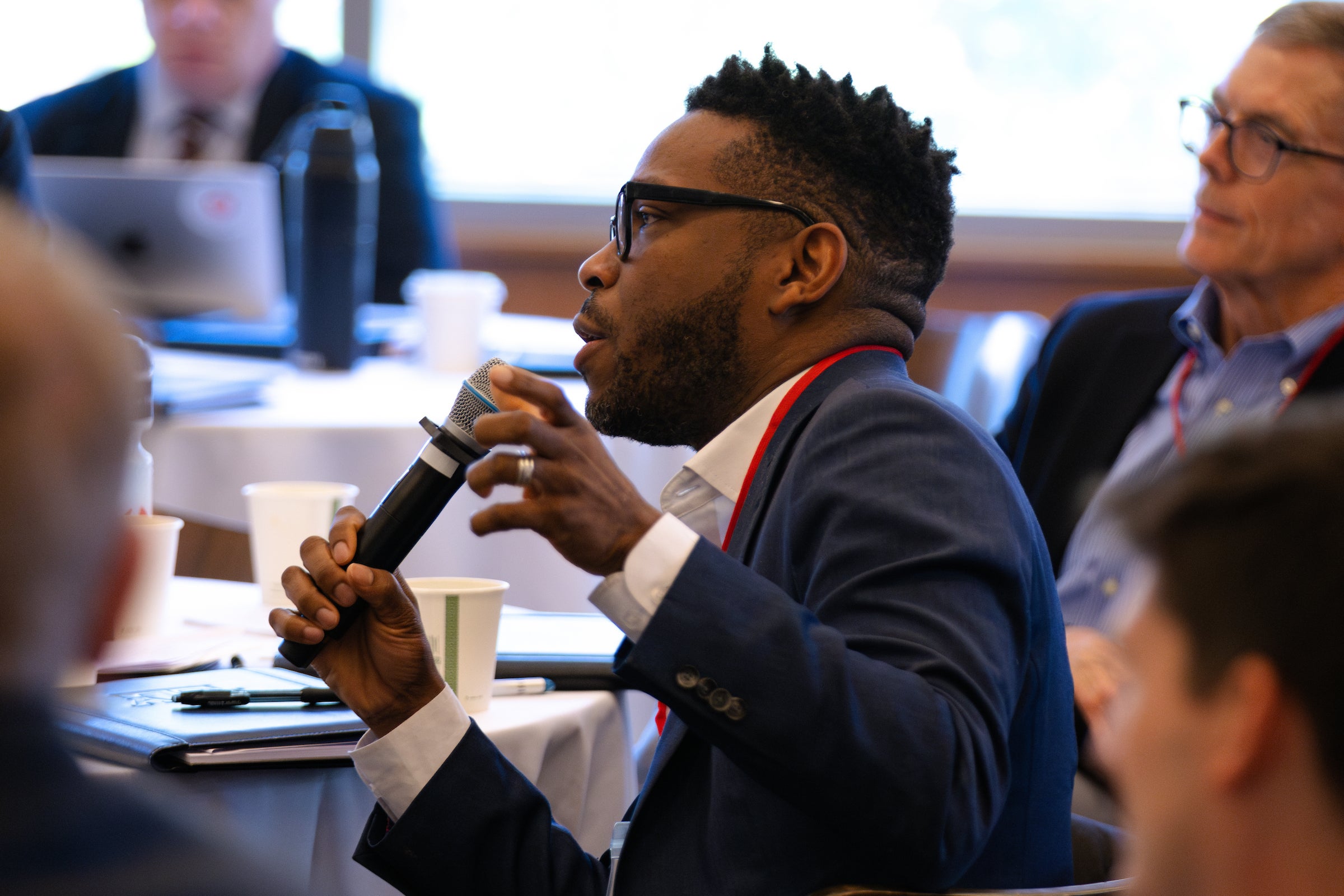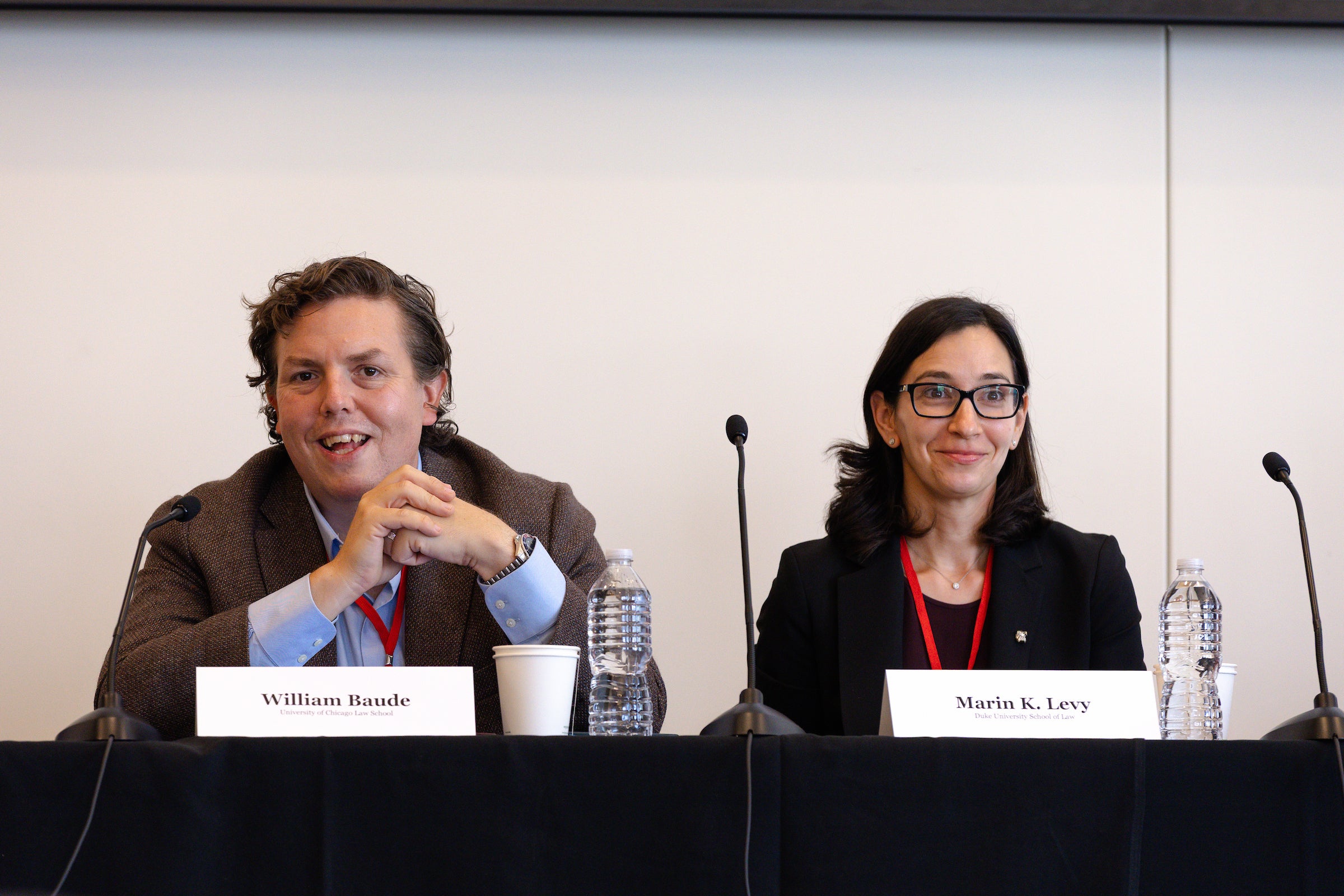As the least powerful of the three branches of government, the judiciary seems to have limited options to maintain its legitimacy during a constitutional crisis in which the executive branch refuses to comply with its decisions, a panel of scholars argued during a symposium sponsored by the Harvard Law Review and the Center on the Structural Constitution at Texas A&M University School of Law.
Nevertheless, judges have successfully navigated such crises in the past — including in the aftermath of the 1800 election, following a line of cases dealing with the Cherokee Nation in the 1830s, and in the wake of Civil War Reconstruction — according to one of the scholars, University of Chicago Law School Professor Curtis Bradley ’88.
Still, under the Trump administration, “Many observers — I would include myself — think we are in one of those times where the judiciary and the Court are in a more precarious position than average,” Bradley said. In part because of “hyperpartisanship” and a Republican-led Congress that “doesn’t push against the presidency of its own party … we don’t have a lot of guardrails for a president that’s going to push as hard as he can if the political checks are not working well.”
The Oct. 10 symposium called “Judicial Review in Jeopardy?” featured ideologically diverse scholars from a range of institutions. Bradley’s comments came as part of a panel moderated by Harvard Law School Roy L. Furman Professor of Law and Leadership Lawrence Lessig. Also on the panel were University of Chicago Law School Professor William Baude, Duke University School of Law Professor Marin Levy, and Texas A&M University School of Law Professor Neil Siegel.
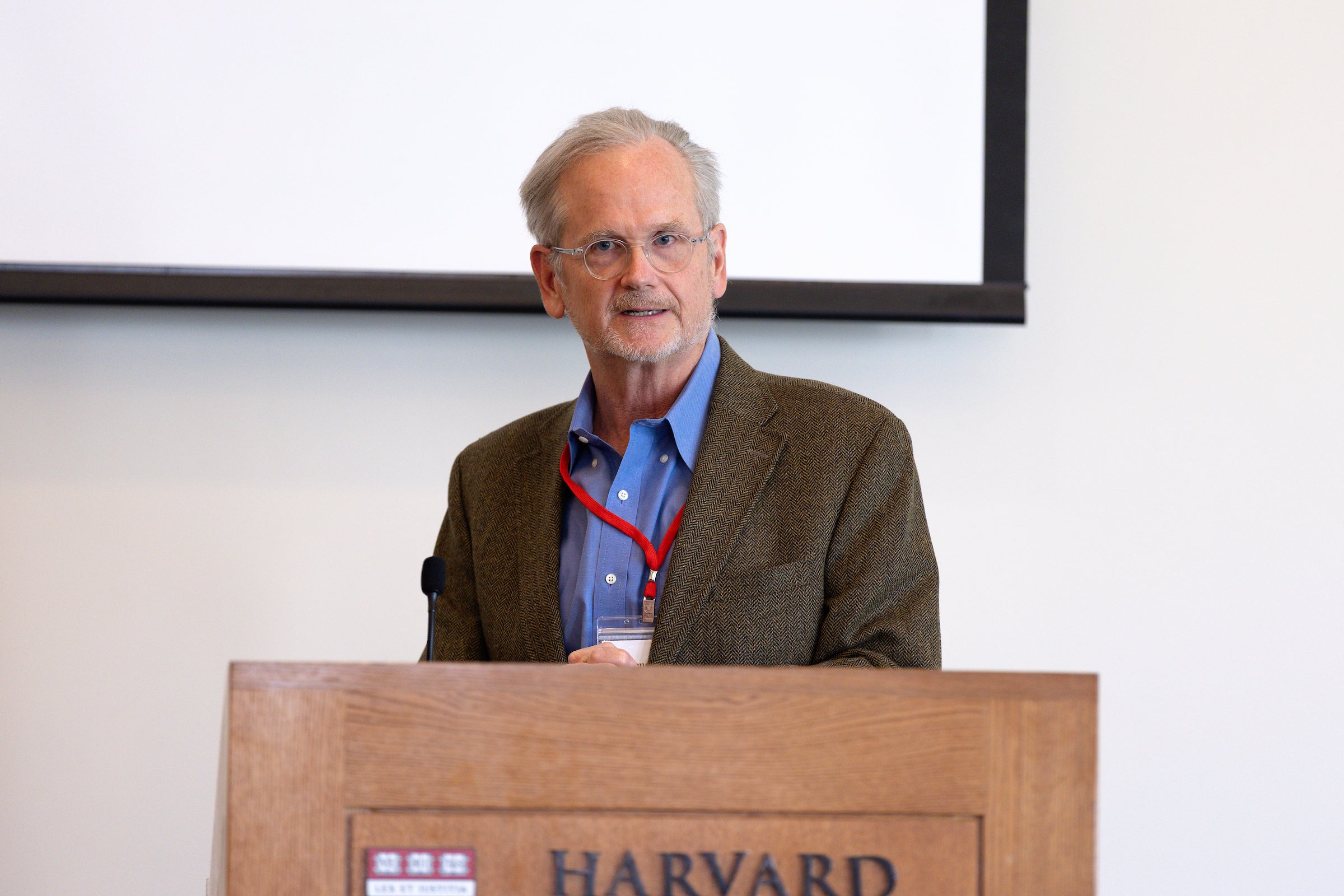
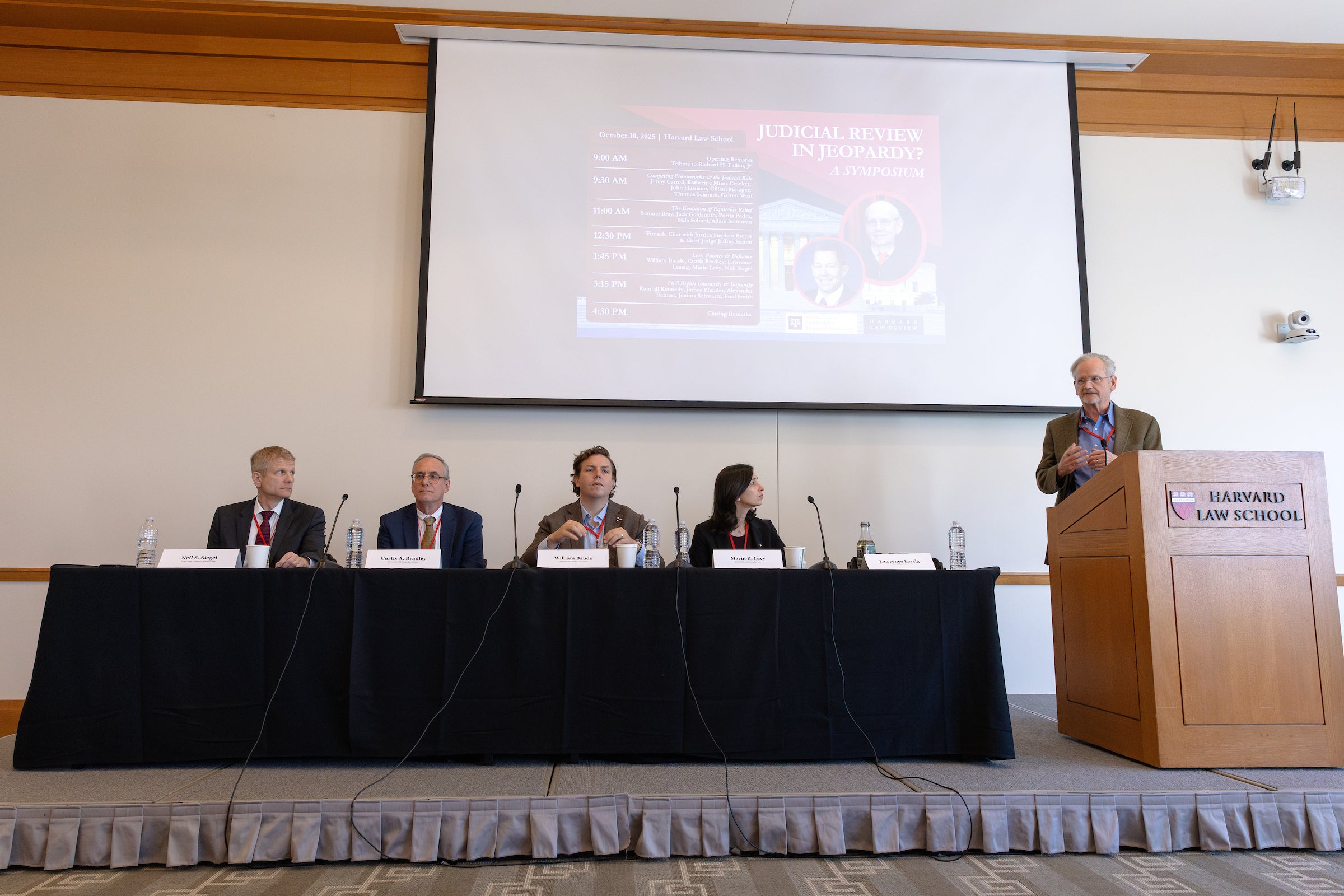
The panelists said court strategies for maintaining legitimacy include concessions, avoidance, delay, public appeals, and acting unanimously. When the judiciary’s legitimacy is being attacked (by calls for impeachment, for instance), the court may save its “capital” for cases in which “basic rights of individuals who cannot protect themselves are being violated and the court believes that it can act in ways to vindicate them,” Siegel said.
The panelists pointed to one recent case as particularly illustrative, that of Kilmar Abrego Garcia, who was wrongfully deported from Maryland to a prison in El Salvador earlier this year. In the case, the U.S. Supreme Court unanimously upheld an order to “facilitate” the man’s return. The appellate decision also was key. Fourth U.S. Circuit Court of Appeals Judge J. Harvie Wilkinson III wrote, “We yet cling to the hope that it is not naïve to believe our good brethren in the Executive Branch perceive the rule of law as vital to the American ethos. This case presents their unique chance to vindicate that value and to summon the best that is within us while there is still time.”
Levy said the use of vague language (like “facilitate” in the Abrego Garcia case) may be strategic on the Court’s part, a way to “accommodate executive non-compliance” by not being too specific in how wrongs should be righted.
Harvard Law School’s Michael R. Klein Professor of Law Randall L. Kennedy, who moderated a panel called “Civil Rights Immunity & Impunity,” asked the panelists during a Q&A segment whether it’s right to assume that the Court is always legitimate, pointing to past egregious decisions such as Dred Scott v. Sandford.
The Court’s imperfections were a given, the panelists agreed.
“This Court does all kinds of things I either disagree with or strongly disagree with,” Siegel said. “But, before I want to delegitimate the Court, I want to ask myself: What are the reasonably available governmental alternatives? And the answer is not Congress … The courts may not be one’s cup of tea, but it may be the only cup of tea one gets to drink. And that’s how I feel right now about the Supreme Court.”
“This Court does all kinds of things I either disagree with or strongly disagree with … But, before I want to delegitimate the Court, I want to ask myself: What are the reasonably available governmental alternatives? And the answer is not Congress …”
Niel Siegel
The symposium also featured a “fireside chat” in which retired U.S. Supreme Court Associate Justice Stephen Breyer ’64, who served on the Court for nearly three decades after being appointed by President Bill Clinton, discussed the process of judicial review with U.S. Court of Appeals for the Sixth Circuit Chief Judge Jeffrey S. Sutton, an appointee of President George W. Bush. The pair discussed — often with humor — the Supreme Court’s growing emergency docket, the major questions doctrine, forum shopping, and theories of judicial interpretation, including originalism, textualism, and Breyer’s pragmatism.
At one point, Breyer mentioned his frequent arguments with the late Associate Justice Antonin Scalia ’60, recalling that “He likes rules.”
“I like rules too” said Sutton, who is a lecturer at Harvard Law School this winter.
“I hate rules,” Breyer responded with a smile.
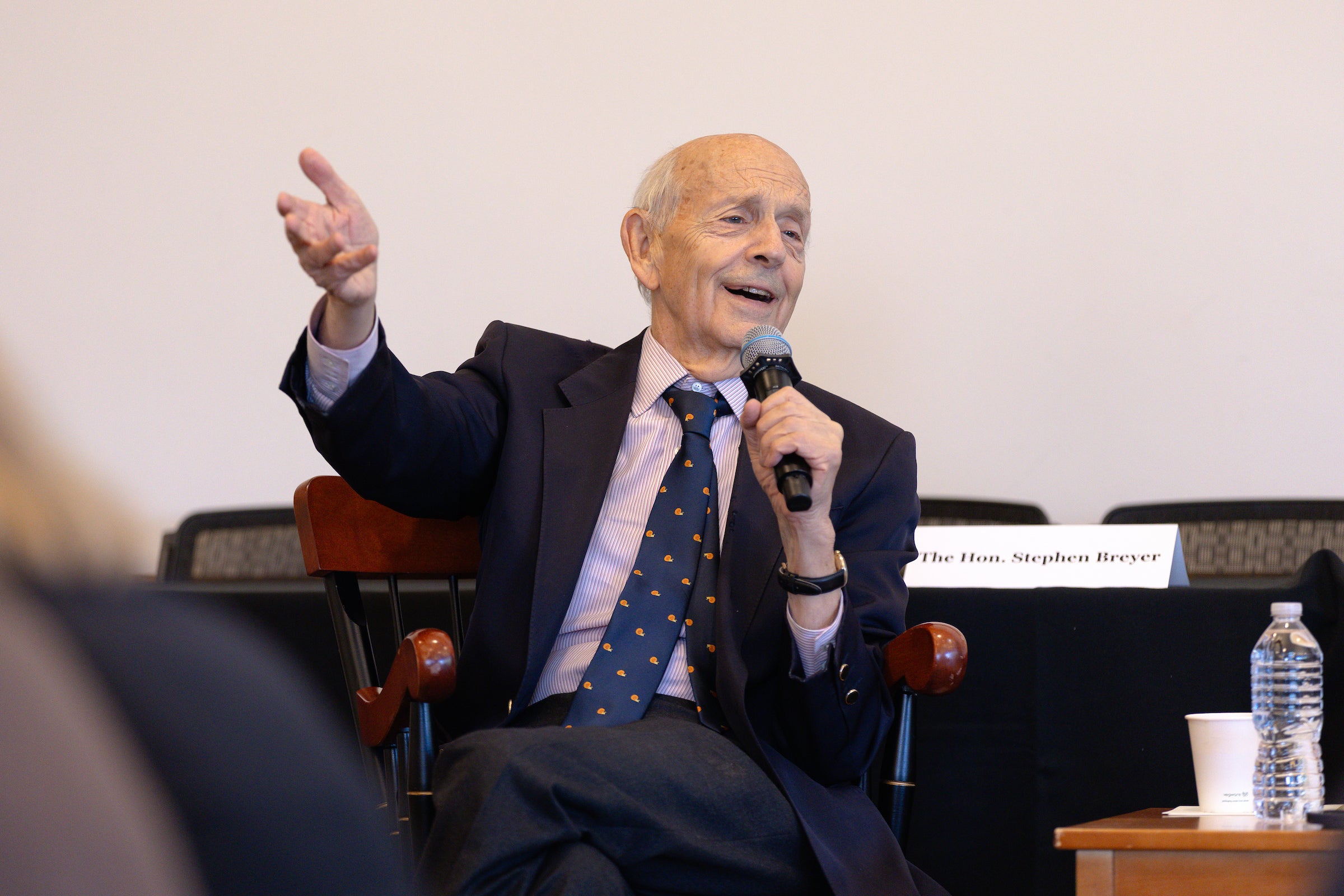
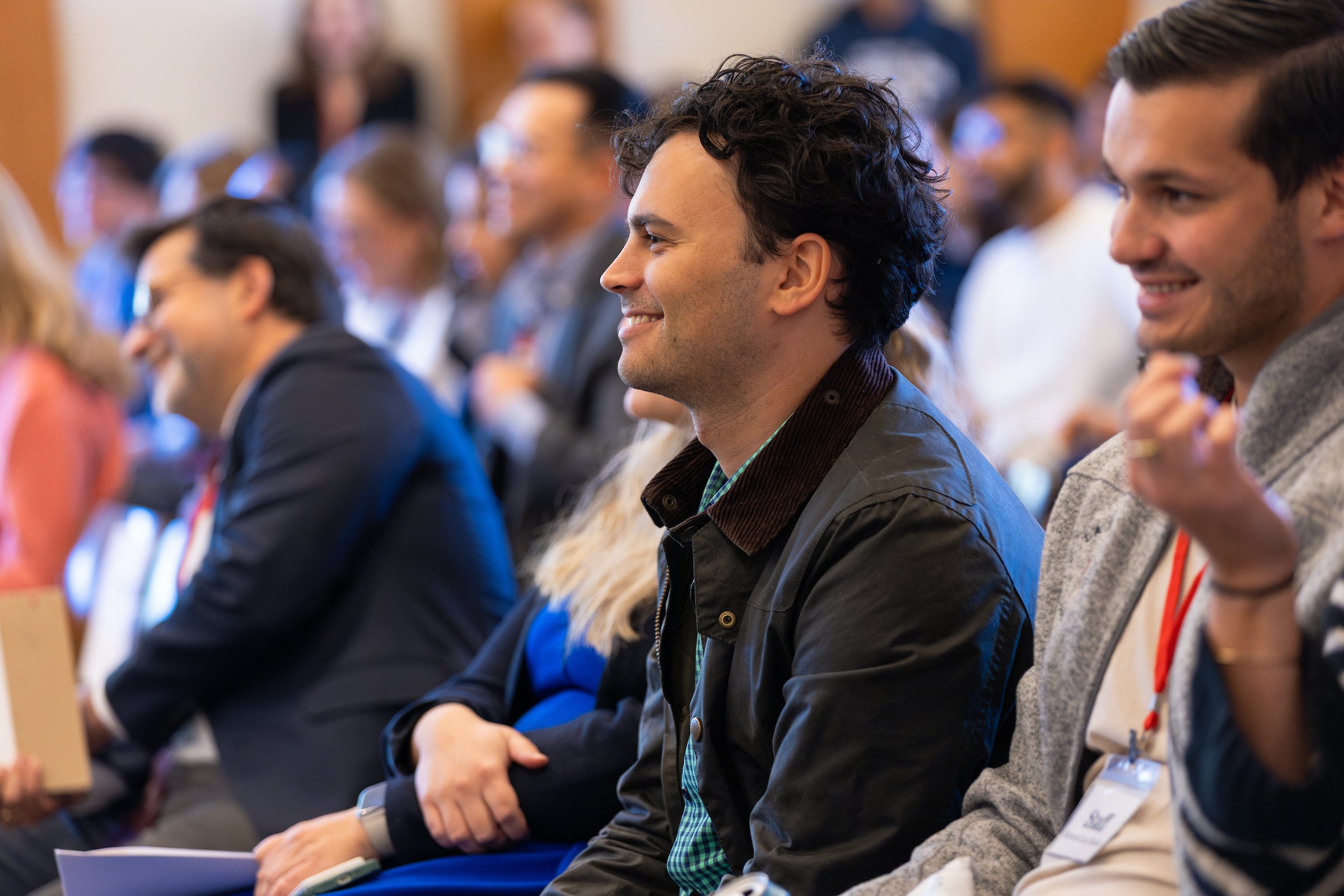
Breyer, the Byrne Professor of Administrative Law and Process at Harvard Law School, agreed with Sutton that whether a question is major (and so perhaps should be left for Congress to answer) and the historical context of a law are relevant, but added that they are just two among many factors judges should consider in deciding cases. Other factors include the consequences of a decision and legislators’ intent when they wrote a law.
Breyer said, “The problem is not what [a judge’s] theory is; the problem is that they have a theory.” He offered the example of a case dealing with what costs could be covered by a prevailing plaintiff.
“What we’re supposed to do under textualism is we read the word carefully — OK, I’ll read it carefully: c-o-s-t-s,” Breyer said, drawing the word out dramatically and prompting laughter throughout the packed room. “That I can get the answer just by reading the text … Don’t kid yourself.”
“The problem is not what [a judge’s] theory is; the problem is that they have a theory.”
Stephen Breyer
Sutton later asked Breyer what he thought judges could do to help the country in a time of increasing polarization.
Breyer relayed advice from then-Attorney General Robert F. Kennedy, for whom he worked in the 1960s.
“He told his staff this … when we were having trouble getting a law through, ‘You find somebody who really disagrees with us and whose intelligence you respect and go talk to them,’” Breyer remembered. “‘Don’t talk too much — listen to what they say … you will find that they will say something in all likelihood that you really agree with and, as soon as they do, you say, What a good idea you have; let’s see if we can work with that.’”
During a Q&A session with the audience, Sutton said Breyer was unique as a justice, in part because of his experience in the legislative branch.
“He worked in Congress, so the thing about working in Congress is you have zero success if you don’t work with the other side,” Sutton said. “So, he knew not to demonize it, he knew to actually learn genuinely to like them. We don’t have any Justice Breyers on the Court right now.”
A series of essays from the symposium will be published in the June issue of the Harvard Law Review. The day-long event also featured a tribute to the late Harvard Law School Professor Richard H. Fallon Jr. and two other panel discussions: “Competing Frameworks and the Judicial Role” and “The Evolution of Equitable Relief.”
Lessig called Fallon a “fallen hero” whose work attempted to think about the relationship between legal legitimacy and sociological legitimacy plus also working through, in a more general sense, questions of how the doctrine needs to account for the capacity of the [judiciary] to do its work within a democratic society.”
Want to stay up to date with Harvard Law Today? Sign up for our weekly newsletter.
